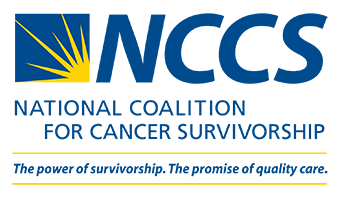NCCS Submits Comments to CMS, Stresses Importance of ACA and Outlines Steps to Strengthen Law
In our letter, NCCS stressed the importance of the Affordable Care Act, with its pre-existing condition protections, community rating requirements, essential health benefits, and cost-sharing reductions, as a step toward providing cancer patients access to quality care without extreme financial toxicity. For many cancer survivors who did not have access to employment-based insurance prior to the enactment of the ACA and who were not eligible for Medicare, their lives have been changed by their ability to obtain insurance and access to care.
NCCS noted that the ACA needs some modifications and refinements, especially to ensure that there are plans offered in every county in the nation. To strengthen the marketplaces and foster more plan choices for consumers, we recommended several actions.
- Cost-sharing reductions should be funded, and questions about the future of these payments should be put to rest.
- The mandate for purchase of insurance should be enforced.
- Funds for market stabilization should be made available in the form of payments to plan issuers with a sicker and more expensive than average pool of insured individuals.
- Patient protections should be enhanced, including cost-sharing protections for prescription drugs and oversight of out-of-network care.
Read the full text of the letter below.

July 12, 2017
The Honorable Seema Verma
Administrator
Centers for Medicare & Medicaid Services
200 Independence Avenue, SW
Washington, DC 20201
Re: Reducing Regulatory Burdens Imposed by the Patient Protection and Affordable Care Act & Improving Healthcare Choices to Empower Patients (CMS-9928-NC)
Dear Dr. Verma:
The National Coalition for Cancer Survivorship is dedicated to public policy efforts aimed at ensuring all cancer patients access to quality cancer care from diagnosis through treatment and survivorship. We represent the 16 million Americans who are cancer survivors. These Americans have a pre-existing condition from the moment they learn they have cancer, and many have substantial health care needs for the rest of their lives. Others may have years with minimal health care needs and costs, only to experience a recurrence that once again means they need significant cancer care services.
We are pleased to offer our advice about the design and maintenance of a patient-centered insurance market, in response to the Request for Information dated June 12, 2017.
Cancer patients need access to health insurance that will cover and reimburse all elements of multi-disciplinary cancer care, and they require such coverage without interruption. Delays in care, inability to access specific therapies, or other shortfalls in access have a direct impact on health outcomes. Cancer patients have long been at risk of medical bankruptcy due to the cost of their care, and they require cost-sharing protections and out-of-pocket spending caps to avoid this financial fate. The Patient Protection & Affordable Care Act (ACA), through its pre-existing condition protections, community rating requirements, essential health benefits, and cost-sharing reductions, was a step toward providing cancer patients access to quality care without extreme financial toxicity. For many cancer survivors who did not have access to employment-based insurance prior to the enactment of the ACA and who were not Medicare-eligible, their lives have been changed by their ability to obtain insurance and access to care. The law needs some modifications and refinements, especially to ensure that there are plans offered in every county in the nation.
1. Empowering patients and promoting consumer choice.
The most effective means for promoting consumer choice is through the establishment of strong marketplaces where there are multiple offerings. This has been accomplished in a number of states, but there are limited choices in other states or counties. To strengthen the marketplaces and foster more plan choices, we urge several actions. Cost-sharing reductions should be funded, and questions about the future of these payments should be answered. The mandate for purchase of insurance should be enforced. Finally, funds for market stabilization should be made available in the form of payments to plan issuers with a sicker and more expensive than average pool of insured individuals.
It has been reported that cancer patients have had difficulties obtaining care at the institution or from the individual physician they prefer because of the network limits of their ACA insurance plans. We urge that there be consumer-friendly standards for appealing a denial of coverage for out-of-network care and that cost-sharing for out-of-network care be counted toward out-of-pocket maximums. The request for information is focused on the elimination of regulations. However, we urge that there be more oversight of out-of-network limitations, as this would protect consumer choice.
2. Stabilizing the individual, small group, and non-traditional health insurance markets.
As we suggest above, market stabilization payments should be authorized, cost-sharing reductions should be paid, and the mandate for purchase of insurance should be enforced. We do not believe that risk pools or other strategies that would segment the population into the healthy and the sick are advisable. Their result will be the destabilization of insurance markets. Cancer survivors know that they need insurance that is comprehensive and covers their needs. If essential health benefits are relaxed and skimpy plans are offered, cancer survivors who need more generous coverage may find that plans that meet their needs are too expensive.
3. Enhancing affordability.
Health care affordability for cancer patients is a complex matter. Cancer patients need affordable yet comprehensive insurance coverage, manageable deductibles, and reasonable cost-sharing responsibilities so that they can use their insurance for accessing care in a timely fashion. They also need the assurance that their insurance plans do not have yearly and lifetime spending limits. Affordable insurance is dependent on healthy insurance markets, as we have discussed above in recommending several measures to strengthen the ACA. We recommend that there be greater patient protections related to cost-sharing for prescription drugs. Many cancer drugs are considered specialty drugs and in some insurance plans are subject to significant cost-sharing requirements. These cost-sharing standards adversely affect patient choices for their care and may also negatively affect adherence with treatment recommendations. We suggest the development of stronger cost-sharing protections as standards for qualified health plans.
4. Affirming the traditional regulatory authority of the States in regulating the business of health insurance.
The request for information suggests that the ACA has impeded the regulatory authority of the states regarding health plans. We do not believe that the ACA has adversely affected the regulatory authority of the states. Instead, it is our view that the insurance protections of the ACA – pre-existing condition protections, community rating, essential health benefits, and elimination of lifetime and annual spending caps – have been a lifeline for cancer patients, protecting their access to care. The oversight of ACA qualified health plans should be a shared responsibility of the federal and state governments, with oversight based on ACA standards.
We appreciate the opportunity to share the perspective of cancer patients. We urge action to strengthen and stabilize the ACA, and we look forward to working with you and your team at CMS.
Sincerely,

Shelley Fuld Nasso, MPP
Chief Executive Officer
Download the letter here. [PDF] (Right-click, save as)
Related Posts
Read more of our coverage on the attempts to repeal the ACA »




